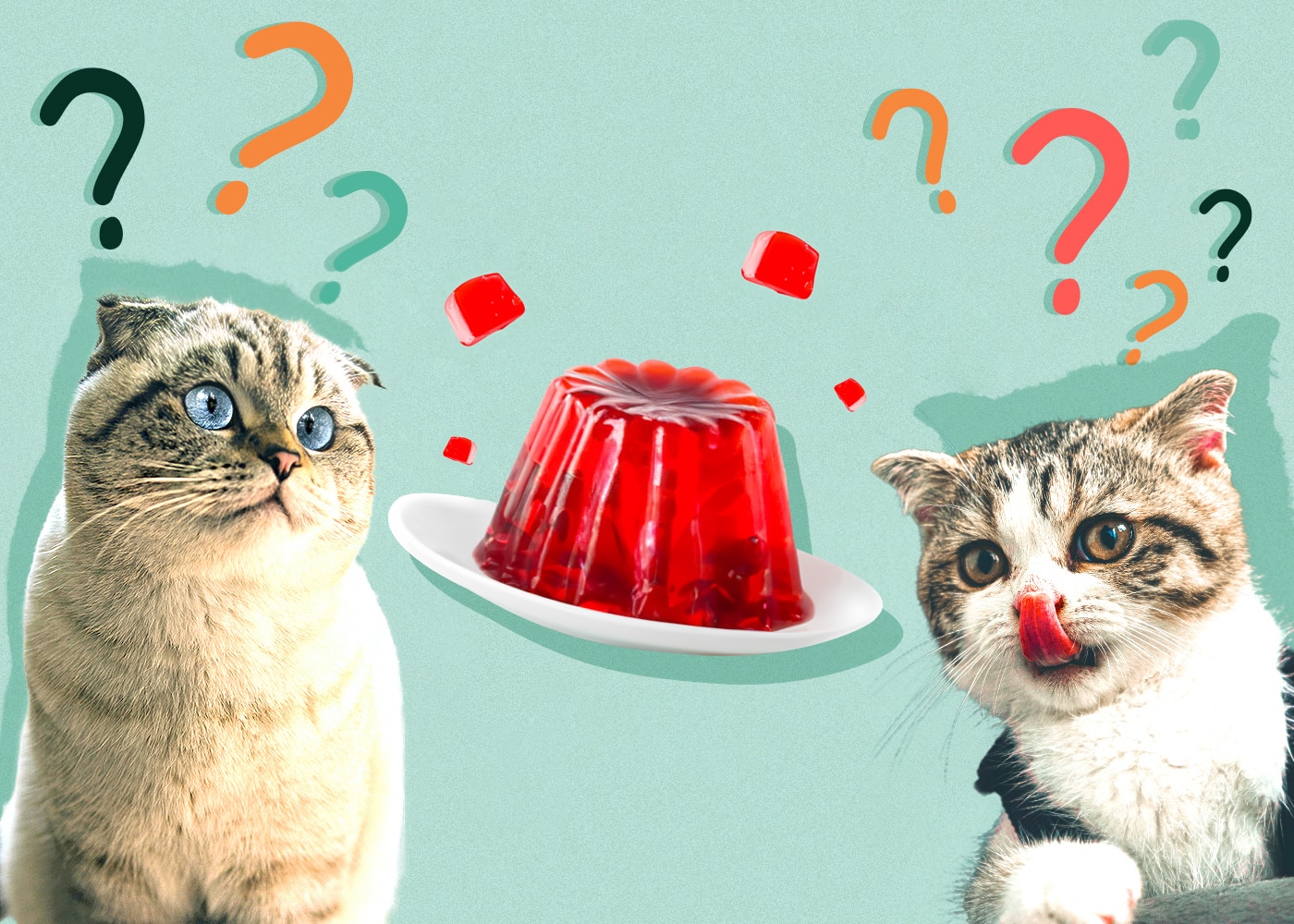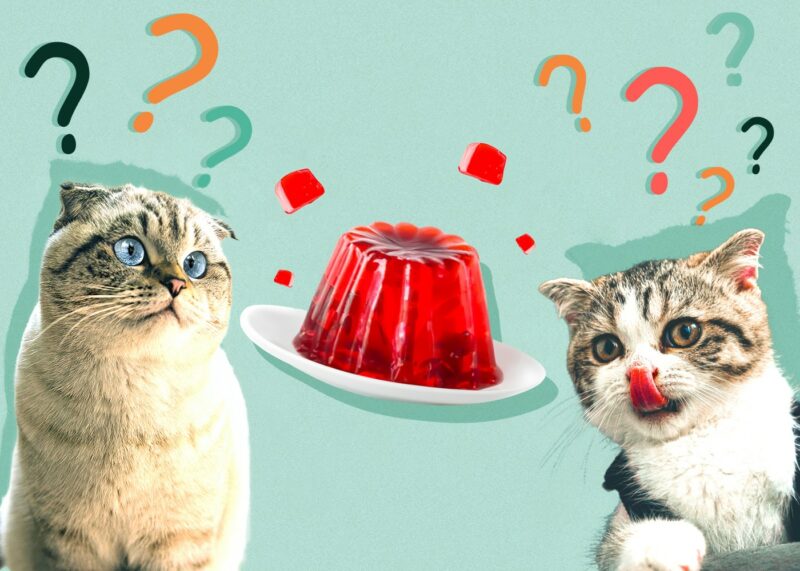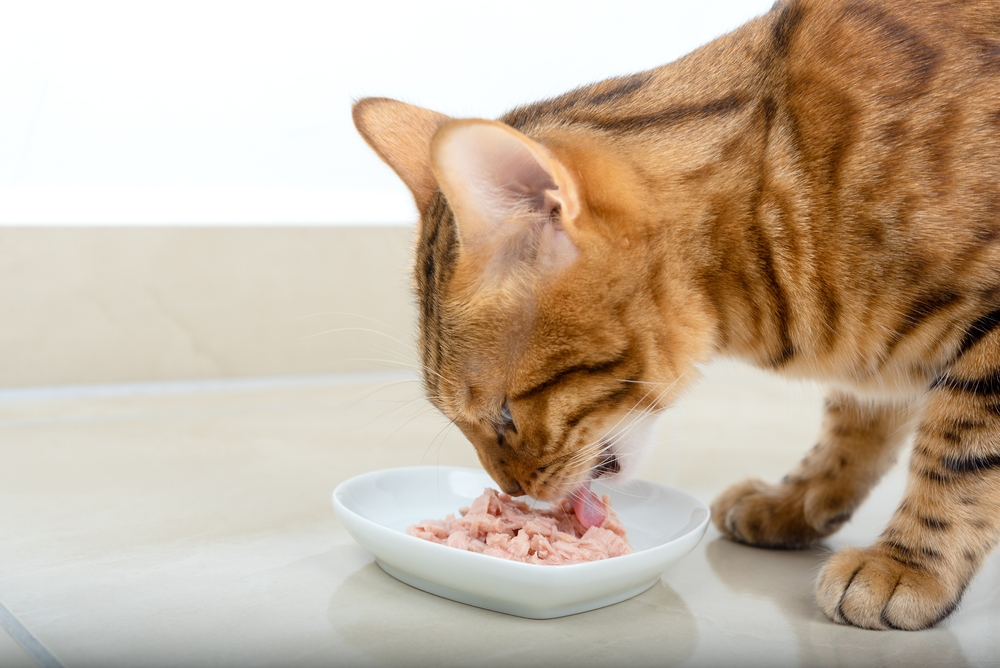Cat parents are always on watch when it comes to what their kitties eat. As a responsible owner, you need to ensure that your feline eats nutritious meals that are intended to keep them happy and healthy. As anyone who’s ever owned a cat knows, cats are curious creatures. Most of the time when we’re enjoying our food, our feline pals will hop on our laps and try to investigate. Whether the food is good for them or not, they are most likely going to try to snatch a bite.
Jell-O is a sweet treat that many people enjoy. There are multiple flavors available, so we humans can enjoy a different taste every day. It’s also squishy and playful, which makes it one of the many human foods that cats may take an interest in. The question is, can cats eat Jell-O? Is it healthy for them? In short, while Jell-O is not toxic for cats, it’s not healthy for them either. Let’s take a deeper look at the question and explain why this isn’t the best treat to give your kitty.
What Is in Jell-O?
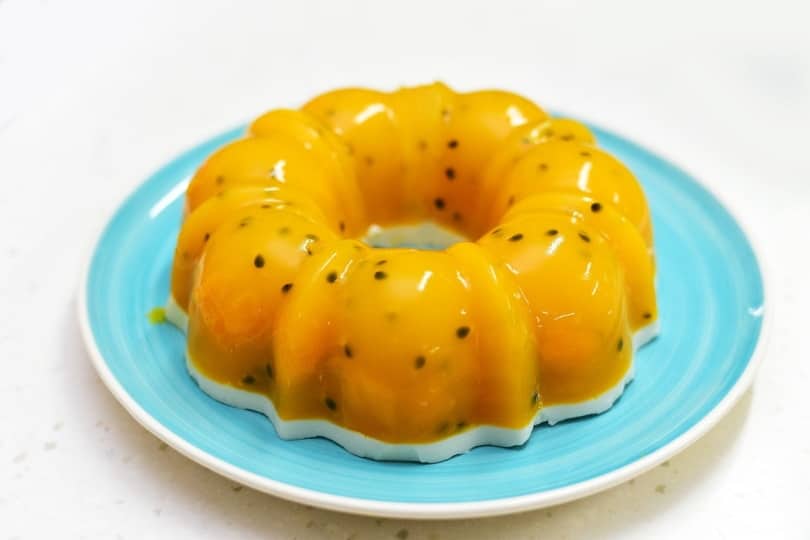
Most of us know what Jell-O is, but do you know what’s in it? Most likely not. Like with many of the treats we enjoy, it’s common for us not to dig too deep into the ingredients. This is especially true with quick sweets. Jell-O is nothing more than gelatin and sugar. You’ll find no vitamins, minerals, or other nutritional extras inside. Let’s take a more in-depth look at the ingredients in your bowl of Jell-O.

What Is Gelatin?
Gelatin comes from animal collagen. This ingredient is tasteless and translucent. When gelatin interacts with water, it takes on the bouncy, rubbery texture we associate with Jell-O. It’s this wiggling effect that may attract your cat’s attention. Luckily, however, when it comes to your kitty, gelatin isn’t an issue and isn’t bad for them.
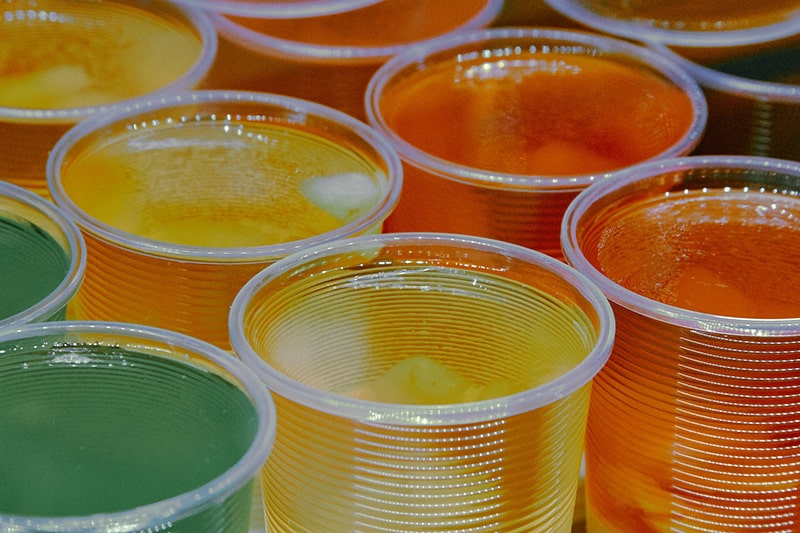
Sugar
Jell-O has quite a bit of sugar in it, which is largely due to the fact that gelatin is flavorless. To achieve the fruity flavors we’ve all come to love, sugar must be added. The addition of sugar increases the calorie count of this treat and makes it more appetizing. Unfortunately, this means it isn’t great for cats.
It’s also possible for Jell-O to include xylitol. This is a sweetener that many companies use to help keep their products from causing tooth decay. Due to its sweet taste, this sugar alcohol is often used in sugar-free gums and even in sugar-free Jell-O. Unfortunately, while it has been proven that xylitol is not half as dangerous for cats as it is for dogs, you should still steer clear of giving it to your cat for safety’s sake.
Artificial Colors and Dyes
As we mentioned, gelatin is translucent. To make Jell-O the pretty colors we’re all used to, artificial colors and dyes are added. In small amounts, artificial colors aren’t dangerous to our kitties. However, considering that large amounts of artificial colors and dyes aren’t great for our kitties either, it’s best to avoid giving them foods or treats with high levels included.
Cats & Sweets
Cats are obligate carnivores. This means the nutrition they need is derived mostly from meat. When it comes to sweets, fruits, and even vegetables, cats don’t need these additions, and some can actually be dangerous to them.
You may wonder why it’s not recommended to give cats a lot of sweet treats. This is due to them having no sweet receptors. Considering they live primarily on meat, there was no reason for kitties to develop the ability to taste sweetness. When it comes to the sweets you treat yourself to, especially Jell-O, your cat doesn’t beg for them due to their want of something sweet. In most cases, there is something about the texture that is alluring to your cat and makes them interested. If you’re unsure of what can be dangerous for your cat, it is best to avoid giving them any sweets, fruity or otherwise.
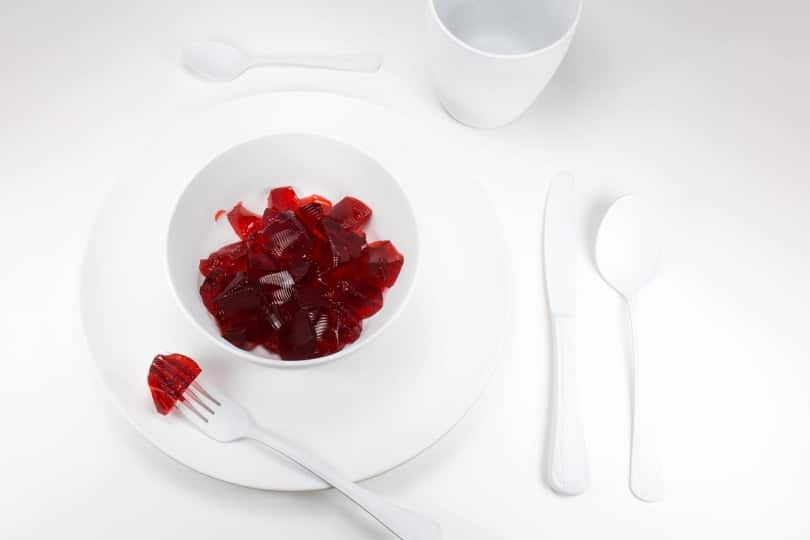
Will Jell-O Kill My Cat?
Fortunately, if your cat happens to pounce quickly enough to snatch a taste of your Jell-O, it won’t hurt them. Even Jell-O featuring xylitol would require more than a quick taste to make your cat severely ill. The most important thing to remember when it comes to cats and their ability to steal bites of food is to always be aware of what they’ve ingested. Nuts, sweeteners, and certain fruits can be included in certain Jell-O desserts, making them even worse for your kitty to eat. If your cat has eaten a fair amount of Jell-O and exhibits signs of distress or upset stomach, contact your veterinarian immediately.
Conclusion
As you can see, Jell-O isn’t the best treat to give your kitty. While it may not be overly dangerous, taking a chance with your cat’s health is never recommended. If you want to give your cat a yummy treat, stick to the meat their diet requires instead of sugary desserts.

